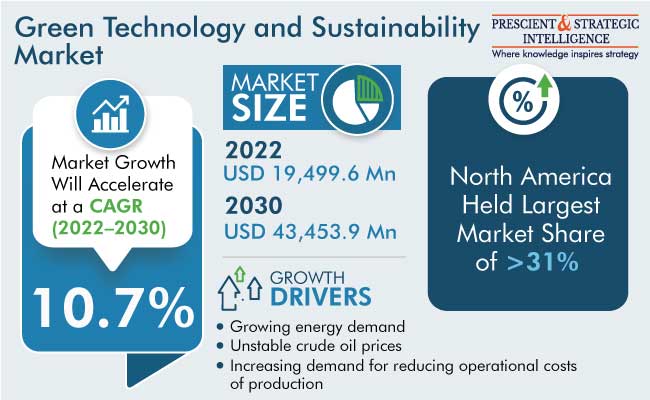I. Introduction to Green Tech & Sustainability Industry
The Green Tech and Sustainability industry is gaining momentum as society becomes more aware of the importance of environmental conservation and sustainable practices. This industry focuses on developing and implementing technologies and solutions that promote renewable energy, waste reduction, and eco-friendly products. Here is an overview of the Green Tech and Sustainability sector and the importance of incorporating sustainable practices into business operations.

Overview of Green Tech & Sustainability
The Green Tech and Sustainability industry encompasses a wide range of sectors and technologies aimed at minimizing the negative impact of human activities on the environment. Key areas within this industry include renewable energy, energy efficiency, waste management, water conservation, and sustainable agriculture. The green tech sector includes technologies such as solar and wind power, energy-efficient appliances, electric vehicles, and recycling systems.
Importance of Sustainable Business Practices
Incorporating sustainable practices into business operations is no longer just a choice; it has become imperative for companies to stay competitive and meet consumer expectations. Here are some reasons why sustainable business practices are crucial:
1. Environmental Impact: Adopting sustainable practices helps to reduce greenhouse gas emissions, conserve natural resources, and protect biodiversity. By minimizing the environmental impact of operations, businesses play a significant role in preserving the planet for future generations.
2. Cost Savings: Sustainable practices often lead to cost savings in the long run. For example, implementing energy-efficient technologies and reducing waste can result in lower energy and material costs. Additionally, eco-friendly initiatives can attract eco-conscious consumers, boosting sales and brand reputation.
3. Regulatory Compliance: Governments around the world are increasingly imposing regulations and standards related to sustainability. By implementing sustainable practices, businesses can ensure compliance with these regulations, avoiding fines and penalties.
4. Brand Reputation: Consumers are becoming more conscious of the environmental impact of their purchasing decisions. Businesses that prioritize sustainable practices and promote eco-friendly products and services can build a positive brand reputation and attract a larger customer base.
5. Innovation and Growth: The Green Tech and Sustainability industry is rapidly growing, creating opportunities for innovation and business growth. By adopting sustainable practices, companies can stay ahead of the curve, attract investments, and tap into new market segments.
By embracing Green Tech and Sustainability practices, businesses can contribute to a greener and more sustainable future while reaping the benefits of cost savings, enhanced brand reputation, and business growth.

II. Trends in Green Tech & Sustainability
Emerging Technologies in Green Tech
Green technology and sustainability are rapidly evolving, and new technologies are emerging to address environmental challenges. Here are some of the emerging technologies in the field of green tech:
1. Solar Power: Solar panels are becoming more efficient and affordable, making solar energy a viable option for many individuals and businesses. Advances in solar cell technology, such as perovskite solar cells, are driving the growth of solar power.
2. Wind Power: Wind turbines are being developed with larger capacities and improved efficiency, allowing for increased electricity generation from wind energy. Offshore wind farms are also being built in areas with high wind resources.
3. Energy Storage: Battery technologies, such as lithium-ion batteries, are improving, enabling the efficient storage of energy generated from renewable sources. These advancements in energy storage are critical for the further development of renewable energy solutions.
4. Electric Vehicles: The popularity of electric vehicles (EVs) is growing, and advancements in battery technology are extending the range and reducing the cost of EVs. Additionally, the development of charging infrastructure is making EVs more accessible.
5. Sustainable Building Materials: Innovative building materials, such as recycled plastics, bamboo, and engineered wood, are being used to construct environmentally friendly and energy-efficient buildings. These materials offer improved insulation properties and reduce environmental impact.
Innovations in Sustainable Energy Solutions
The growing demand for sustainable energy solutions has led to significant innovations in the field. Here are some notable innovations in the pursuit of sustainable energy:
1. Smart Grids: Smart grids are being developed to integrate renewable energy sources into the existing power grid more effectively. These grids utilize advanced monitoring and control systems to optimize energy distribution and reduce energy waste.
2. Water Desalination Technologies: As freshwater scarcity becomes a global concern, innovative desalination technologies are being developed to convert saltwater into freshwater more efficiently. These technologies can help address water shortages in coastal regions.
3. Waste-to-Energy Conversion: Technologies that convert waste into energy, such as anaerobic digestion and thermal conversion, are gaining traction as solutions for managing waste and generating renewable energy simultaneously.
4. Carbon Capture and Storage: Carbon capture and storage (CCS) technologies are being developed to capture and store carbon dioxide emissions from power plants and industrial processes. This helps reduce greenhouse gas emissions and mitigate climate change.
5. Green Hydrogen Production: Green hydrogen, produced through electrolysis using renewable energy, is gaining attention as a clean energy source for various industries. Advancements in electrolyzer technology are driving the growth of green hydrogen production.
These emerging technologies and innovations in sustainable energy solutions are shaping the future of green tech and sustainability. By investing in and adopting these technologies, individuals and businesses can contribute to a more environmentally sustainable future.

III. Market Growth of Green Tech & Sustainability
Global Market Size and Forecast
The global market for green tech and sustainability is experiencing significant growth as more businesses and consumers prioritize environmental conservation and sustainable practices. Here are some key insights into the market size and forecast:
- The global green tech market is projected to reach $36.31 billion by 2026, growing at a CAGR of 8.4% from 2021 to 2026.
- The renewable energy sector is a major contributor to the market, with solar energy accounting for the largest share in terms of revenue.
- The sustainable packaging industry is also experiencing substantial growth, driven by increasing demand for eco-friendly materials and packaging solutions.
- The electric vehicle (EV) market is another key segment, with governments and organizations worldwide promoting EV adoption as part of their efforts to reduce carbon emissions.
- Government regulations and incentives are playing a crucial role in driving market growth, encouraging businesses and individuals to adopt green tech solutions.
Key Factors Driving Market Growth
Several factors are driving the growth of the green tech and sustainability market:
- Environmental Concerns: Growing awareness about climate change and its impact on the planet is leading to increased demand for sustainable technologies and practices.
- Cost Savings: Green tech solutions, such as energy-efficient appliances and renewable energy sources, can significantly reduce operating costs for businesses and individuals.
- Government Support: Governments around the world are implementing policies and regulations to promote green initiatives, including tax incentives and subsidies for renewable energy and sustainable practices.
- Consumer Demand: Consumers are increasingly demanding environmentally friendly products and services, driving businesses to adopt green technologies and practices to meet market demand.
- Technological Advancements: Continuous advancements in green technologies, such as improvements in solar panel efficiency and battery storage solutions, are making sustainable options more accessible and cost-effective.
- Corporate Sustainability Initiatives: Businesses are recognizing the importance of adopting sustainable practices as part of their corporate social responsibility efforts, which further drives the market growth.
The growth of the green tech and sustainability market presents significant opportunities for businesses and entrepreneurs to develop innovative solutions and contribute to a more sustainable future.
IV. Marketing Strategies for Green Tech Companies
Effective Messaging and Branding
When it comes to marketing green tech products and services, it’s essential to have a clear and compelling message that resonates with consumers who are interested in sustainability. Here are some effective strategies for messaging and branding in the green tech industry:
1. Emphasize the Environmental Benefits: Highlight the positive impact your green tech product or service has on the environment. Clearly communicate how it helps reduce carbon emissions, conserve energy, or promote sustainable practices.
2. Use Clear and Simple Language: Avoid technical jargon and complex terminology. Use simple and straightforward language to clearly articulate the benefits of your product or service to consumers.
3. Create a Strong Brand Identity: Develop a brand identity that aligns with sustainability values. Use eco-friendly packaging, design a logo that reflects sustainability, and ensure that your brand messaging conveys a strong commitment to environmental responsibility.
4. Tell Your Story: Share the story behind your green tech company. People connect with stories, so highlight the passion and purpose that led to the creation of your product or service. Show how your company is making a difference in the world.
Targeting and Engaging Green-conscious Consumers
In order to effectively market to green-conscious consumers, it’s important to understand their values and motivations. Here are some strategies for targeting and engaging this specific audience:
1. Conduct Market Research: Gain insights into the preferences and behaviors of green-conscious consumers through market research. Understand their needs, values, and purchasing habits to tailor your marketing efforts effectively.
2. Utilize Social Media: Engage with your target audience on social media platforms that are popular among green-conscious consumers. Share educational content, sustainability tips, and updates on your green tech products or services.
3. Collaborate with Influencers: Partner with sustainability influencers who have a strong presence online and a dedicated following. Their endorsements and recommendations can greatly impact the perception of your green tech brand.
4. Educate and Empower Consumers: Provide educational resources and content that empower consumers to live more sustainable lifestyles. This can include blog posts, webinars, or social media campaigns that promote sustainable practices.
5. Offer Incentives and Rewards: Create loyalty programs or offer incentives and rewards for customers who choose your green tech products or services. This can include discounts, exclusive access, or special promotions for those who prioritize sustainability.
By implementing these marketing strategies, green tech companies can effectively communicate their message and engage with green-conscious consumers. Remember, it’s crucial to always be transparent and authentic in your marketing efforts, as consumers in this space value honesty and integrity.
V. Business Development Opportunities
When it comes to green tech and sustainability, there are several business development opportunities that companies can explore. These opportunities can help drive growth, promote environmental responsibility, and contribute to a more sustainable future. Here are two key areas to consider:
Partnerships and Collaborations in Green Tech
Partnering with other companies in the green tech industry can lead to innovative solutions and new market opportunities. By collaborating with like-minded organizations, businesses can pool their resources, expertise, and technologies to develop sustainable products and services. Some potential partnership opportunities include:
- Collaborating with renewable energy companies to develop hybrid solutions that combine traditional energy sources with clean energy alternatives.
- Joining forces with waste management companies to create effective recycling and waste reduction programs.
- Forming partnerships with transportation companies to develop eco-friendly alternatives, such as electric vehicles or public transportation systems powered by renewable energy.
These partnerships can not only drive business growth but also contribute to a more sustainable future by reducing carbon emissions, conserving resources, and promoting circular economy practices.
Final Insights on Investment and Funding in Sustainable Solutions
Investing in sustainable solutions can be a profitable and impactful business strategy. Financial institutions and investors are increasingly recognizing the potential of green tech and sustainability, making it an attractive sector for investment. Some areas for investment and funding include:
- Renewable energy projects, such as solar, wind, and hydropower, which offer long-term returns and contribute to the transition to clean energy.
- Sustainable agriculture and food production, including vertical farming, organic farming, and plant-based protein alternatives.
- Smart grid and energy storage solutions, which promote efficient energy management and reduce waste.
- Waste management technologies, such as recycling and waste-to-energy conversion, which address the growing issue of waste pollution.
By investing in these sustainable solutions, companies can support the development of innovative technologies, drive economic growth, and contribute to the preservation of the environment.
Overall, business development opportunities in green tech and sustainability are abundant and diverse. By embracing these opportunities through partnerships, collaborations, and investments
Did you find this content helpful?
Let me know in the comments and I can make similar types of posts or expand upon a topic that you may find of great use.
Until the next post, all bests & as always: happy growing 💎
Click the Learn More button to get our Growth Playbook for Agricultural, Environmental, & Clean Tech companies.

